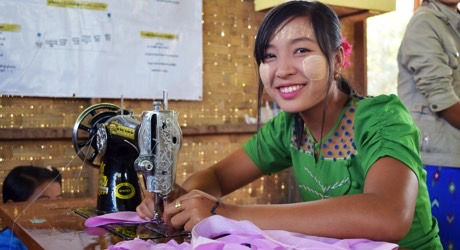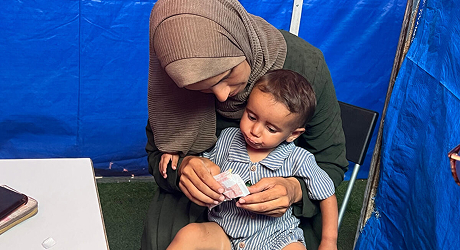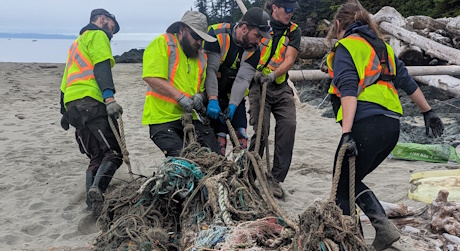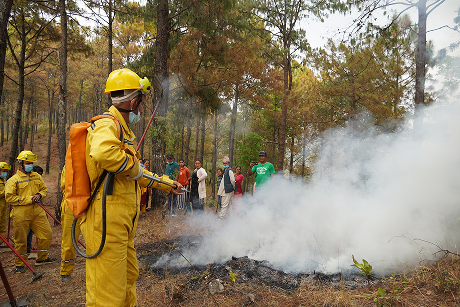Footprints Project
Since 2005, travelers like you have helped us change the world through micro-donations.

-
A total of
6241
Travelers
-
donated
$20002
(100% funded) -
to help improve
Employment
-
impacting
2000
people -
in
Myanmar
Project Background
In Myanmar, deeply entrenched discrimination prevents women from getting jobs and training – particularly those in remote rural areas. Women have limited influence on decision making and restricted access to land, assets, affordable finance and business opportunities. This creates a massive barrier to their full and equal participation in their country’s economy.
This project will strengthen the economic empowerment of women previously relegated to domestic chores, backbreaking agricultural work or forced child-marriage by building demand and providing training in the tourism and hospitality sector.
Project Outcomes
Key successes in numbers:
- 2,020 local young people from 70 target communities have enhanced confidence, capacity and employability for decent work in the hospitality sector.
- 500 participants have gained the required soft and hard skills from relevant and quality skills training, while 1,700 completed face-to-face and digital soft skills training.
- 70 target communities identified and actively addressing the social barriers which prevent vulnerable young women and men from getting and keeping decent work.
- 2,020 young people participating in the project are successfully transitioning to decent work in the local hospitality sector, 60% of which are female.
- Duty-bearers create and sustain an enabling environment for economic empowerment. National Youth Policy developed to promote youth employment and leadership.
- Local businesses are investing in reducing the barriers to decent work for vulnerable youth and especially women.
- 80 private sector partners engaged in provision of on-the-job opportunities, mentoring support and decent work opportunities for local, vulnerable youth & women.
- Increased capacity of vocational training institutions.
Project Challenges
In Myanmar, deeply entrenched discrimination can prevent women from getting paid work.
A gender analysis was undertaken through focus group discussions with young men and young women in the targeted communities, revealing issues such as safety and security issues for young women posing a challenge to their participation in training away from home, as well as childcare for some women.
Also included in the gender analysis was a 2016 situational analysis – Gender Equality and Women’s Rights in Myanmar – undertaken in partnership with UN agencies; Asian Development Bank, Ministry of Social Welfare, Relief and Resettlement. This analysis was undertaken to support the implementation of the National Strategic Plan for the Advancement of Women 2013-2022 which was adopted by the (Myanmar) Ministry of Social Welfare, Relief and Resettlement to address these concerns and challenges.
Partnerships and Community Involvement
Attitudes within the community:
- Positive attitudes from the empowerment of women and youth gaining confidence through training and up-skilling.
- Women and youth being able access training and employment means they can contribute to their families and households. This is helping to remove barriers such as attitudes towards gender roles and supports their participation in the country’s economy.
- This project is tackling social norms and attitudes towards the value and participation of women and youth within their communities. Improving relationships and wellbeing.
- Parents and leaders highly engaged in the discussions around the importance of girls being able to reach their potential and access their rights.
Partnerships:
Plan International Myanmar, Mandalay Hospitality Vocational Training Institute, Myanmar Hotelier Association Bagan Zone, Myanmar Restaurant Association Bagan Zone, Department of Social Plan International believes in strong partnerships and in-country capacity building to ensure sustainability of our projects.
This project will build the capacity of existing vocational training providers, to develop and adapt training curricula to deliver skill sets in demand by the labour market. The project will also establish mechanisms for coordination and collaboration between vocational training providers and businesses, to create mutually beneficial partnerships and establish the model of pathways to employment. Engaging both employers and training providers in developing and delivering the curriculum and on the job training will not only ensure that training is relevant, but also enable them to build and improve on training and outcomes each year
In addition to this other implementation partners include:
Plan International Myanmar, Mandalay Hospitality Vocational Training Institute, Myanmar Hotelier Association Bagan Zone, Myanmar Restaurant Association Bagan Zone, Department of Social Welfare, Department of Hotel and Tourism.
Case Study

May Zin Htet, a 22 year old young woman from a village in Nyaung U Township. Prior to joining the YEE program, May Zin worked as a primary-school teacher in the Kokeng self-administered zone, but had to relocate to the city of Mandalay after fighting broke out between rebel tribes and government forces in 2015. She found work in a restaurant, but was disappointed by the lack of opportunities to advance her career.
May Zin moved back to her village in January 2018 when she heard about the Women’s Economic Empowerment program. After completing the training course, May Zin said, “I have more confidence that my life will improve in the future because I received skills through the program, including on-the-job training.” She also gained additional technical skills, including English and Chinese language, social and life skills, and work-related etiquette. The program gave May Zin not only skills she can use in the short-term, but abilities and confidence to fulfil her dreams and aspirations for a better future.
At the end of the training, May Zin passed her ASEAN hospitality exam, as did all of the other 39 trainees in the program. May Zin now has an offer for employment from the hotel where she did her on-the-job training, and sees a clear pathway to career advancement. She plans to work hard so that she can become a supervisor within the next two years.
What Next?
Plan will link training providers, the tourism sector association with local government, facilitating strong relationships between them so they can take ownership of the program after Plan International’s involvement has come to an end.
Plan International will work with national government to support their ownership of the digital e-learning curriculum and Monitoring & Evaluation System. There is great potential for this to be rolled out nationally as the National Youth Policy is further developed and implemented, and thereby deliver sustained impact beyond the immediate geographic focus area.
Traveling soon? When you buy travel insurance with us, you can make a contribution towards a cause you care about.
Get a quote







